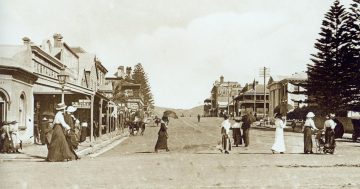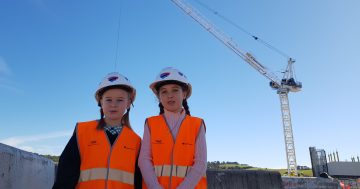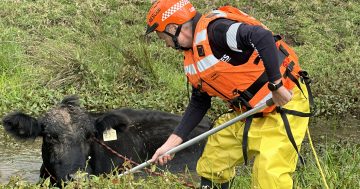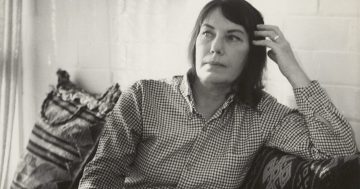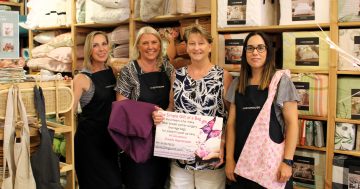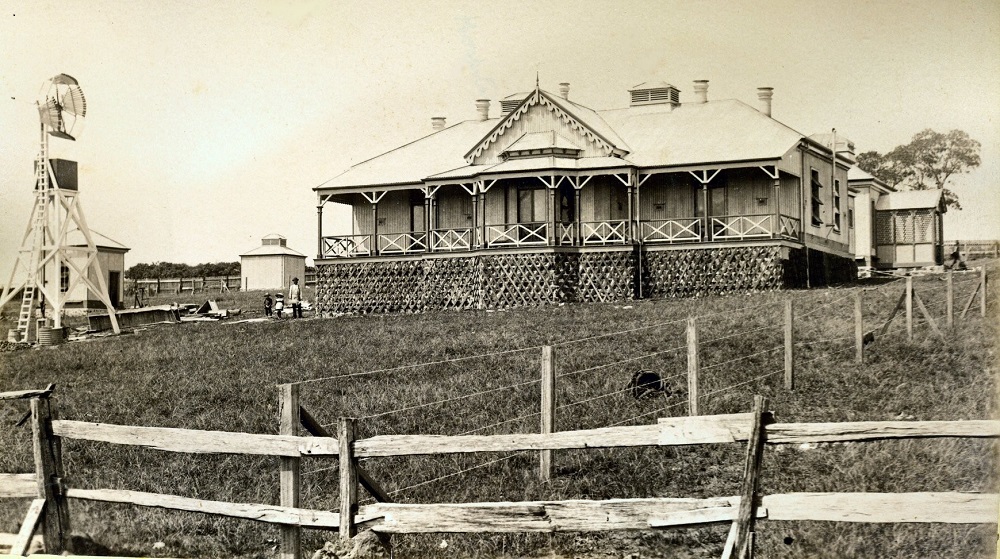
The original Kiama Cottage Hospital that Matron Isabella Barron managed from its opening in 1887 until 1910. Photos: Kiama Council.
The first Kiama Cottage Hospital was opened at the top of Barney Street in 1887 to support the booming population of quarry workers in the area.
During the 1870s and 1880s, Kiama was the colony’s leading source of blue metal, which was being used to construct buildings, roads and railways.
According to Kiama Library’s Local History Stories series, Kiama became home to many men working in this dangerous industry, many of whom had no family to support them when they became sick or were injured, therefore the need for a hospital became apparent.
When the hospital opened, the staff consisted of the matron, Miss Isabella Barron, and a wardsman, her brother John.
John and Isabella had migrated to Australia from Scotland three years earlier. They were paid a combined £80 a year to run the hospital. John and Isabella arrived four days before the official opening of the hospital and immediately set to caring for the patients who had typhoid fever.
The first death at the hospital was on 6 June, 1887 – the patient had been admitted with typhoid fever the day before the hospital officially opened.
While John and Isabella worked together, Isabella, as matron, was responsible for all the domestic duties for the hospital, such as the cooking and laundry, while John dealt with all the heavy manual work, along with any tradesmen and shop owners in Kiama who worked with the hospital.
Many of the patients admitted in the early years were either suffering from typhoid fever or injuries from work-related accidents, especially from the quarries. Maternity cases were not admitted to hospital.
Sadly, John died suddenly within two years of arriving in Kiama.
With him gone, Isabella had to suddenly manage both roles and was promoted to matron-superintendent in charge of the hospital. Her salary was set at £52 a year for the remainder of her time at the hospital.
Shortly after John died, Isabella’s niece, Margaret Barron, was employed as her assistant. However, this arrangement was short-lived as Margaret married and had children. While giving birth to her second child, Margaret and the child died. Isabella took on Margaret’s first-born child (who was 11 months old) to raise. The hospital committee allowed the matron to have the child with her at the hospital at her own expense.
The matron lived at the hospital and was available 24 hours a day, week in, week out. It was never contemplated that she would have time off during the week or even holidays.
She worked for the first six and a half years without any time off. Matron had her first holiday in 1894 for a month when her health was affected by her continuous work life.
While Matron Barron was on leave, she didn’t receive normal ”holiday” pay, as we would today; she had to remunerate the relief person out of her own salary. In 1907, Matron Barron was offered an increase in her salary from £52 to £60, but declined as she felt she was close to retirement.
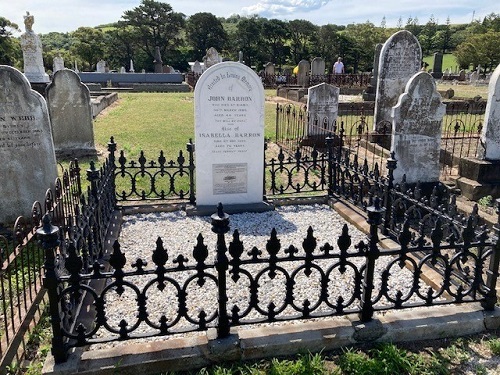
The graves of Isabella Barron and her brother John at Kiama Cemetery.
During her 23 years at the Cottage Hospital, the conditions that the matron had to navigate included the limited water supply; cooking with wood and coal on a fuel stove; and limited supplies, as the hospital committee only provided splints, surgical instruments and opium (bandages were made from old linen donated by the women of Kiama). She also had to deal with deranged people the police brought into the hospital before they were sent to asylums in Sydney.
In July 1910, Matron Barron, then in her 50s, resigned from her position after taking six months’ forced leave due to a decline in her physical and emotional health.
She was held in high regard by the community, judging by a story in the Kiama Independent and Shoalhaven Advertiser on 30 July, 1910, announcing her retirement.
The report stated: “Few hospitals in the State have a finer record according to its capacity, for good service done to humanity in alleviating sickness and suffering, and with that history Miss Barron has been identified.
“The old and infirm have had her ministrations for long and weary months when human patience must have been taxed to the utmost.
“Her care and patience have taken them to the borderland in gentle solitude when there was none of their own to smooth the journey.
“The traveller by the way, sick in mind, body and estate, has been cared for, comforted and helped on his way in many, many instances.
“Creed or color mattered nothing, only their need, and more of personal care, interest and help was given than the general public knew or is likely to know in the proud reticence of the one that gave it from a generous heart and hand.
“Her tender care for the patients, her sympathy and utter forgetfulness of self in the work she has so dearly loved, will stand for a memorial in the memory of many who benefited by it in their hour of need, and those who have been interested in the work the hospital has done in the years that are past.
“Her work was her life-interest, and in the service of the Kiama hospital her best years of strength have been given with a high purpose and a deep sense of duty that is laden and followed with blessing.”
Matron Barron died in 1926 at age 77 at the ill-reputed Rydalmere Psychiatric Hospital and her body was returned to Kiama to be buried in the Kiama Cemetery next to her brother.
Kiama Hospital was moved to Bonaira Street in 1930 and a new nurse’s home was opened in March 1950. The Maternity Unit, Birrahlee (an Aboriginal word for baby), was opened in November 1951.
Kiama Hospital operated until 2016.









